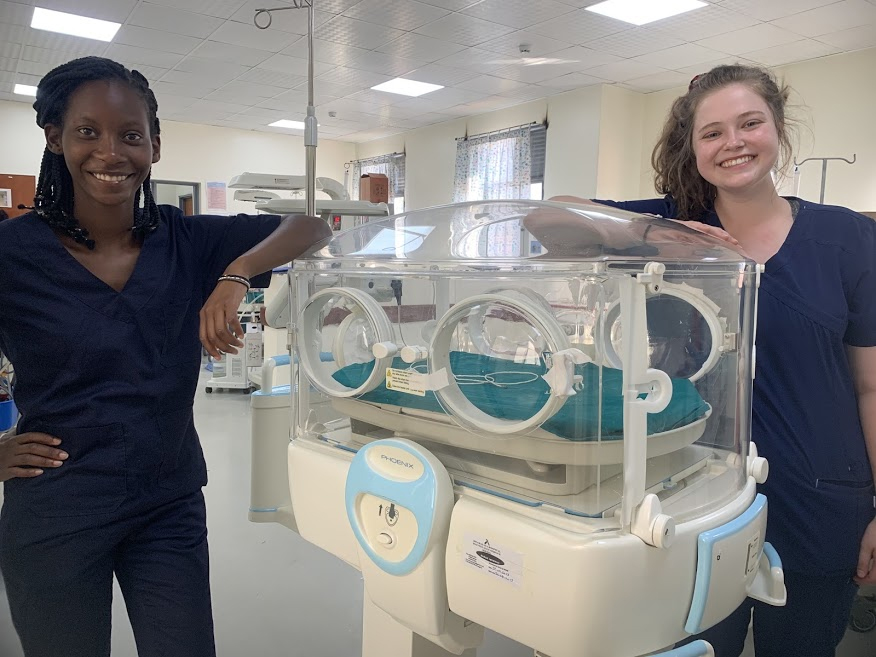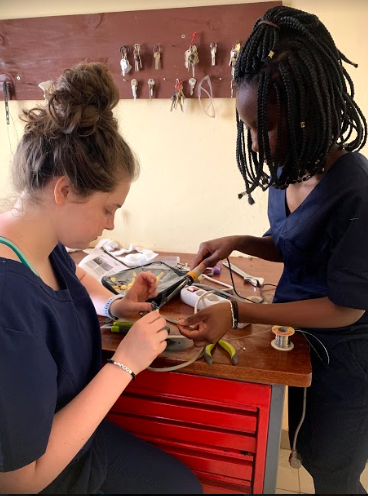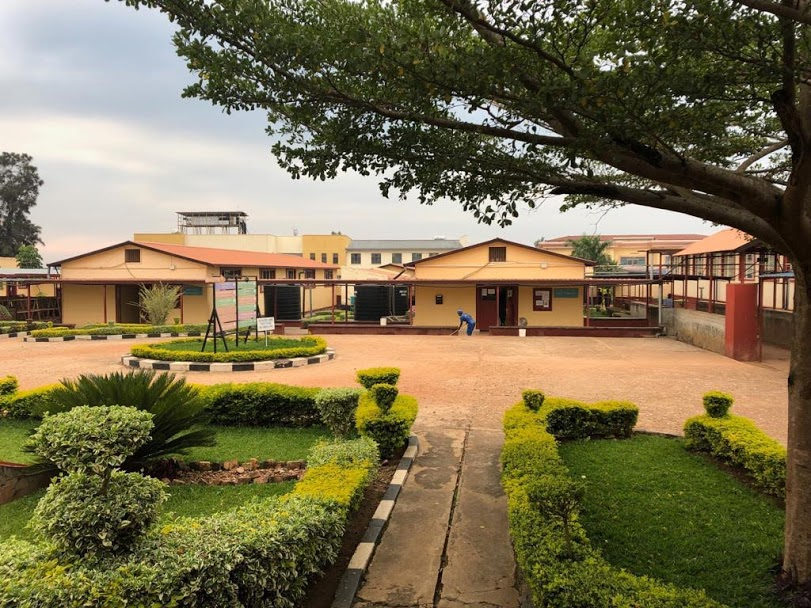When Pascale Kunda, a junior mechanical engineering major at St. Thomas, returned to her home country of Rwanda last summer, it wasn’t just to catch up with her family. She was there to repair hospital equipment through the Engineers for World Health program. She saw firsthand the challenges involved when replacement parts don’t exist or need to be imported, which reinforced her desire to design parts that make machines operate smoothly.
“Rwanda is a really beautiful country and the people are friendly,” Kunda said. “It’s a developing country, but it’s developing at a fast rate – such a fast rate that we also can’t believe it!”
During her summer in the African country, she collected several key takeaways including:
- “Impact requires investment: I was impressed by the hard work that biomedical technicians do at hospitals.”
- “Living and/or working in a limited resource environment should never be a reason to abandon your design or your ability to create: I learned that our biomedical technicians’ experience has taught them that being creative does not require you to have unlimited resources.”
- “Helping is an act of the heart! I learned that helping does not require you to know a person at a deeper level. It’s the willingness to be there for somebody whom you know might never be there for you.”
After graduation, Kunda hopes to join Engineers Without Borders or return to Rwanda to work in the biomedical field. She has definite ideas of what she’d like to accomplish and said whatever she ends up doing, the Lord will be part of her future plans.
“I’d like to be a missionary spreading the Gospel, wherever God sends me,” she concluded.
Kunda kept a blog during her trip to reflect on her experiences. Here are some excerpts.
June 4, 2019

Pascale Kunda and Lauren, her lab partner, pose after repairing an incubator. Contributed Photo
In January 2017, when brother was hospitalized at the University Teaching Hospital of Kigali, I remember passing by the maintenance department and thinking to myself, “I wish I could work here and repair hospital equipment.” Dreams can come true! Even a one-minute thought can become an amazing reality.
I not only worked in the maintenance department, but also my partners and I repaired a nebulizer there.
It was also my first time to go on a safari at Akagera National Park. I was thrilled to see more beauty that my country holds, especially now that Rwanda has reintroduced the big five animals: lions, leopards, rhinoceros, elephants and Cape buffalo.
June 18
Seniors majoring in biomedical engineering from Rwanda Polytechnic, where our classes are held, joined us so that they can learn more English and help non-Kinyarwanda speakers practice using the language. (I speak three of the four official languages: French, English and Kinyarwanda but not Swahili.)
We visited Kibagabaga hospital in Kigali, my home town, where we worked on different medical devices with a goal of fixing them or identifying the main problems that caused them not to function. At first, it was a daunting experience for me because I had never worked on a medical device, and I thought that the two days we had of training were not enough, but I was mistaken.
As we opened our oxygen concentrator and analyzed the circuits and other parts to check if they were functioning properly, I started feeling more comfortable and confident that we would be able to fix it. Unfortunately, we could not fix it because it had many missing inside parts that we did not have replacements for, and its zeolite (a mixture of gases) tanks had expired.

Pascale Kunda and Lauren, her lab partner, make repairs.
July 3
For the last two weeks of training, we visited King Faisal Hospital and Muhima Hospital. I was so excited to visit King Faisal Hospital because it is one of the best and most well-equipped hospitals in Rwanda. We did not expect to find much equipment to work on, but surprisingly, the eight of us that went there repaired six pieces of equipment that were then put into use.
At Muhima Hospital, we did not repair much equipment because they required spare parts that we did not have access to.
We also visited Agahozo-Shalom Youth Village, which is a nonprofit whose aim is to provide vulnerable and orphaned youths with necessary healing and education. We built an ECG simulator with some of the students, and each one got to keep it.
July 14
We started working as volunteer biomedical technicians in the maintenance department of Rwamagana Hospital. It is a relatively large hospital, with 11 departments. Maternity is the busiest.
The maintenance department has three biomedical equipment technicians (BMETs) who are well-trained and organized. Having us three interns in the workshop did not help them a lot since they do not have a large equipment graveyard, and they do preventive maintenance often. Instead, it helped us learn from them and acquire new skills.
The BMETs not only work on biomedical equipment, but also are responsible for repairing doors, changing lamps and distributing oxygen. (Since Rwanda is a developing country, we still use oxygen tanks.)
This week was our last full week at Rwamagana Hospital, and the most work-filled week we have had so far. We repaired an incubator in the neonatal intensive care unit (NICU), and it was put back in service after nurses cleaned it.
We learned from the medical techs because they’re so knowledgeable. The main issue is spare parts – they’re expensive and require a process just to request them from other countries, so it takes time. Sometimes they try to fix it using the equipment they have, like melting plastic to close an incubator door.

Rwamagana Hospital
We also worked in the mortuary, which was beyond my work expectations. It was a scary experience entering the room where mortuary refrigerators are kept, but it forced us to work out of our comfort and fear zones. There’s an alarm that sounds when the temperature is not regulated; it wasn’t working, so it was getting warm. We had to go to our next stop so we couldn’t fix it, but even so, medical technicians usually have to call someone from the outside who works with refrigerators to repair it.
We abandoned eight medical devices because we did not have the spare parts needed or a service manual for them but we fixed and did preventive maintenance on 15 medical devices, including infant warmers, incubators, ultra-sound machines and fetal monitors.
